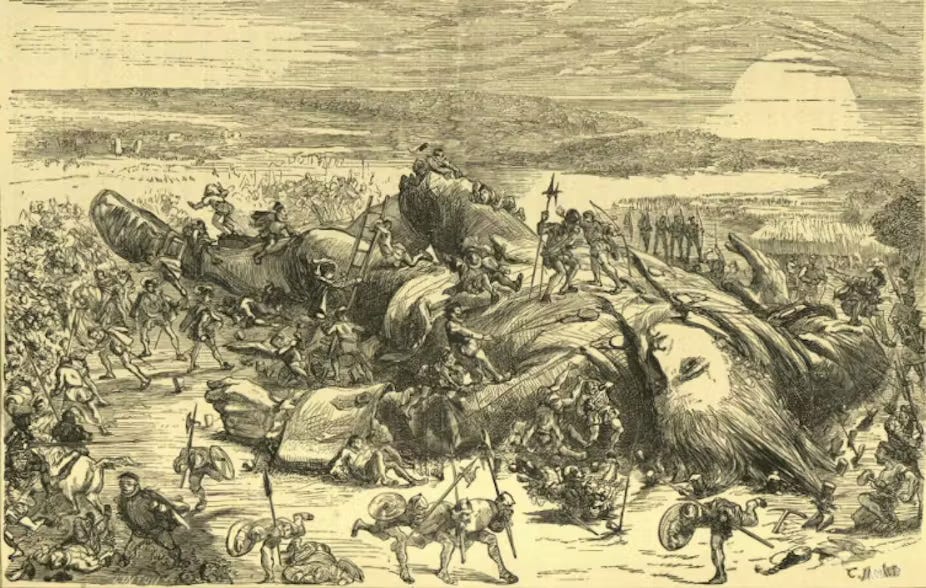Irish Enlightenment notes
A few notes
The Irish Enlightenment certainly shows the fragility of good ideas and of auspicious movements. Ireland did not adopt their perspective, and inasmuch as their program was intended to remedy the plaintive Irish economic situation, it did not succeed on the kind of timeframe they would have hoped.
But for me it also shows the endurance of good ideas. Ireland itself may not have been particularly influenced, but Smith was, as were the American founding fathers, Voltaire, Kant, Hume, de Tocqueville, and, eventually, the Austrians and the free market movement. (Hayek repeatedly cites Burke as a model and wrote an introduction to a reprint of Cantillon.) In 1958, 223 years after The Querist, TK Whitaker published Economic Development, a landmark report that set forth an open and trade-led vision for Irish economic growth.
If you haven’t read Patrick Collison’s tweet on the Irish Enlightenment, do that first and then come back. This is an area where I know need to do more work. Still, I have a few additional thoughts.
The Irish Enlightenment is consistent about the need for Ireland to be treated equally with England in matters of trade and monetary policy, but also that Ireland needs to take the initiative as a nation. They are all calling for Ireland to cohere and work for itself. This might be its biggest legacy. (Yeats: “Swift haunts me; he is always just round the next corner.”) History is significant for a number of these thinkers, as it was for Smith and Hume. Smith, of course, was significantly influence by Swift as well as Hutcheson. See the Lectures on Rhetoric. National character and culture is also central to the Irish Enlightenment. And there is a condemnation of slavery. Locke is crucial too.
They are also all reformers. The tone of the Querist is hard to define, and I find it to be a confusing text overall, but it is essentially a cry for reform. Like Burke, Swift is cautious about constitutional change: but they both prefer reform to revolution. Swift’s horror at the beheading of Charles I matches Burke’s reaction to the French Revolution and his anticipation of the Terror. Neither of them, however, wants a monarchy without Parliamentary restraint, and both see 1688 as the crucial settlement to bring peace and stability without reverting to the domination of the unfettered king. (Who knows how they would have felt about the Reform Act of 1832, but there is little in their writing to suggest they would have opposed it on principle. The economic changes that lead to that Act would have figured in their reasoning very heavily. Both would have despised the idle corruption of the rotten boroughs; both would have agreed that some sort of Commons representation was necessary for the “improvement” of conditions; neither would feel (I speculate) that the overall constitutional balance was threatened. Perhaps they would have disputed the terms of the Bill, because they were contingent, historical thinkers.)
Both the Scottish and Irish Enlightenments were looking to reform their societies, even if Swift claimed he aimed only to vex. But I think of Smith as observing, describing, and theorizing about emergent ideas and behaviours, whereas Swift, Berkley, and to some extent Cantillon are trying to open up questions. Burke too, later on. Smith wanted to change his society, but the thinkers of the Irish Enlightenment wanted people to be able even to begin the debate.
In all of this, we can see Gulliver’s Travels as a seminal text of the Irish Enlightenment. Swift was at his best politically in the Drapier’s Letters, but is perhaps most generally useful as a philosophical-novelist and social-science-thinker in Gulliver, which works, like Berkley’s Querist, to undermine the norms and assumptions that lead to stagnation in Ireland economically and in England politically.
Isn’t the opening up of questions where Enlightenment begins?



Thank you for this commentary. It has led me to pull down my copies of Hume, Smith, et al. (Burke I know by heart). Swift did say he wanted to "vex." But the purpose of vexation was revaluation. I recall being taught that the 18th century was a era of settled ideas, of equilibrium. Reading the works of that era, I never could justify that claim.
the american (ACLU) enlightenment includes both Jewish sanctuaries of LA and NY, and the Anglo Enlightenment includes all of England, Wales, Scotland, Ireland (and Paris!)